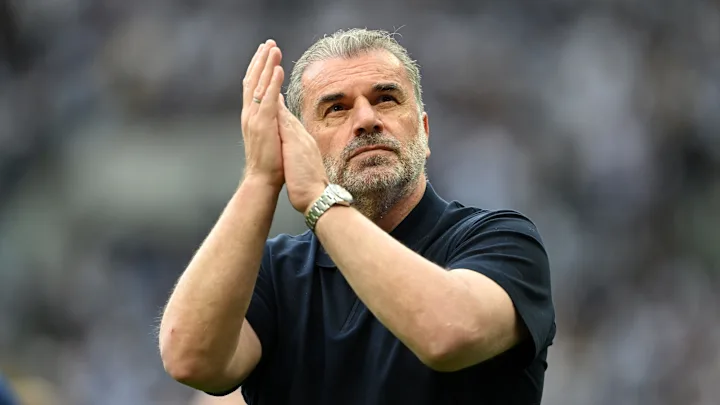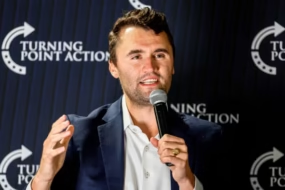Early Life and Background
Angelos “Ange” Postecoglou was born on August 27, 1965, in Nea Filadelfeia, a suburb of Athens, Greece, to parents who had emigrated from the Alaşehir district of Manisa in Turkey during the 1923 population exchange between the two countries. At the age of five, Ange and his family made the significant move to Melbourne, Australia. This relocation marked the beginning of a new chapter in their lives, as they sought to build a better future far from the turmoil that affected their homeland. Raised in the multicultural suburb of Melbourne, Postecoglou grew up in a close-knit Greek-Australian community where cultural ties were strong and football was an integral part of everyday life.
His father, Dimitris (“Jim”), had been a successful businessman back in Greece, but the economic hardships resulting from the political instability of the Greek junta in the 1960s led to the collapse of his business. This financial setback prompted the family’s decision to migrate to Australia, where they hoped to find stability and opportunity. Despite the struggles the family faced, they remained close-knit, and Postecoglou’s childhood was filled with a mix of both Greek traditions and the broader Australian culture.
From a young age, Postecoglou developed a deep love for football, inspired by his father and his community. His passion for the sport became a central part of his life, and it was through football that he began to forge his identity, not just as an athlete but as an individual deeply connected to his heritage. Growing up in Melbourne’s Greek-Australian community, he found a sense of belonging in the local football scene, particularly with South Melbourne Hellas, a club that would play a key role in shaping his future.
Early Football Career
Postecoglou’s football journey began when he joined the South Melbourne Hellas youth setup in 1978 at the age of 13. He quickly became a standout player, impressing coaches and teammates with his natural ability and leadership skills. He made his senior debut for South Melbourne Hellas in 1984, marking the start of a decade-long career at the club. Over the next nine years, he played in 193 matches, scoring 27 goals. He was known for his tenacity, work rate, and ability to read the game. He was a central figure in the team’s defense but also demonstrated an attacking mindset, contributing goals at crucial moments.
Postecoglou’s leadership qualities were evident early on, and he was made the club’s captain, leading South Melbourne Hellas to the National Soccer League (NSL) titles in 1984 and 1990–91. His time as captain of South Melbourne Hellas cemented his reputation as a key figure in Australian football. His leadership was characterized by a no-nonsense approach, a focus on discipline, and a commitment to the team’s success. Even as his playing days came to an end, Postecoglou’s influence on the club and the sport remained strong.
In the latter years of his playing career, Postecoglou briefly played for Western Suburbs in 1994 and Stonnington City in 1995. Though he spent only a short time at these clubs, he continued to impress, scoring three goals in the process. On the international stage, Postecoglou represented Australia’s U20 team, earning 13 caps and scoring 1 goal. He also earned four senior caps for the Socceroos between 1986 and 1988, though his international career was cut short due to the limited opportunities for footballers at the time.
Transition to Coaching
After retiring as a player in 1994, Postecoglou quickly transitioned into coaching. He took on the role of head coach at Western Suburbs in 1994, before moving on to South Melbourne Hellas in 1996, the club where he had enjoyed the most success as a player. Under his leadership, South Melbourne Hellas enjoyed one of the most successful periods in the club’s history. In his first two seasons as coach, Postecoglou led the team to back-to-back NSL titles in 1997–98 and 1998–99. His coaching style was influenced by his playing career, emphasizing a possession-based approach to football, one that valued teamwork, movement off the ball, and technical skill.
In addition to the domestic success, Postecoglou also led South Melbourne Hellas to victory in the 1999 OFC Champions League, a significant achievement for the club and Australian football as a whole. Postecoglou’s success at South Melbourne Hellas put him on the map as one of Australia’s most promising young coaches, and it was clear that his potential as a manager was just beginning to be realized.
From 2000 to 2007, Postecoglou took on the role of head coach for Australia’s U17 and U20 teams, where he had even more success. He guided the U17 team to three OFC U-19 titles in 2001, 2002, and 2005, establishing himself as one of the most successful coaches in Australian youth football. His ability to develop young talent and implement a tactical, possession-based style of play became a hallmark of his coaching career.
Rise to Prominence
Postecoglou’s career took a significant leap forward when he became the head coach of Brisbane Roar in 2009. His time at the club was nothing short of transformative. In just three years, Postecoglou turned Brisbane Roar into one of the most dominant teams in the A-League, winning two championships in 2011 and 2012. His innovative approach to football, which became known as “Angeball,” was characterized by high pressing, fast transitions, and an emphasis on keeping possession of the ball. It was a bold and attacking style that captured the imagination of football fans across Australia.
Postecoglou’s success at Brisbane Roar earned him a move to Melbourne Victory in 2012, where he continued to implement his philosophy and led the club to further domestic success. However, it was his appointment as the head coach of the Australian national team in 2013 that truly cemented his legacy in Australian football. During his tenure as the Socceroos’ manager, Postecoglou guided Australia to its first-ever AFC Asian Cup title in 2015. Under his leadership, the team not only achieved success on the continental stage but also qualified for the 2014 and 2018 FIFA World Cups.
International Success and Coaching Overseas
Postecoglou’s international coaching career extended beyond Australia when he took over as head coach of Yokohama F. Marinos in Japan in 2018. There, he helped the team win the 2019 J1 League, marking the club’s first league title in 15 years. This success further demonstrated Postecoglou’s ability to adapt his tactics and philosophies to different football cultures.
In 2021, Postecoglou took on the challenge of managing Celtic FC in Scotland, one of the most storied football clubs in the world. His time at Celtic was marked by great success, as he led the club to multiple trophies, including two Scottish Premiership titles and a domestic treble in 2023. His influence at Celtic solidified his reputation as one of the most accomplished coaches in world football.
Return to the Premier League
In 2023, Postecoglou made his long-awaited move to the Premier League with Tottenham Hotspur. His first season at Spurs was a mixture of highs and lows, as the team struggled with defensive issues but showed promise with its attacking play. Postecoglou’s tactical acumen was on display as he guided the team to a UEFA Europa League title in 2025, ending a 17-year trophy drought for the club. However, his time at Tottenham came to an abrupt end after a disastrous 2024–25 Premier League campaign, which saw the team finish 17th with 22 losses. Despite the European success, Postecoglou was dismissed by the club due to his failure to address the defensive weaknesses.
Personal Life
Off the field, Postecoglou is married and has children. He has remained closely connected to his Greek heritage and enjoys returning to Athens to visit family. Postecoglou is a passionate fan of rock music, particularly Led Zeppelin, and has often spoken about how his love for music and literature has influenced his life. He has a straightforward, engaging personality, and his commitment to attacking football has made him a fan favorite wherever he has coached. Despite the criticism he has received for his rigid adherence to “Angeball,” Postecoglou’s passion for the sport and his unwavering belief in his philosophy continue to drive his success.









No Comments